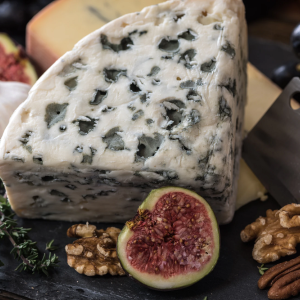
This paper uses interviews with senior representatives of the UK food retail sector to explore how retailers view sustainable diets and the extent to which “less and better” meat and dairy plays a part in these understandings. It finds that retailers have diverse understandings of sustainable diets, and that these seldom include “less and better” meat and dairy. While retailers are implementing strategies to improve the sustainability of their meat and dairy supply chains, none of the retailers studied are actively trying to reduce the amount of meat they sell.
Sustainability and health professionals from seven supermarkets were interviewed, representing 73% of the UK grocery market.
The interviews indicated that the concept of “less and better” meat and dairy does not feature heavily in most retailers’ understandings of sustainable diets. When asked about sustainable diets, no interviewees directly mentioned the concept of “better” meat, while three mentioned reducing meat consumption compared to plant protein. One interviewee mentioned “less and better” when asked about corporate strategy around meat and dairy.
Although the concept of “better” meat and dairy was not directly mentioned by interviewees initially, all retailers reported using various strategies to promote sustainable purchases by customers. These include both supply-side measures such as improving sourcing policies and demand-side measures such as providing plant-based alternatives and using store layout and marketing to influence customer choices.
No retailers reported setting demand-side targets for “less” meat and dairy, since this was seen as too difficult and going against the retailers’ business model. There was a preference for targets to increase sales of plant-based products. In contrast, all retailers have implemented supply-side interventions for “better” meat and dairy, focusing on livestock feed and farm management. Some retailers are aiming for 100% British meat and dairy sourcing, arguing that this offers greater influence on production practices.
The paper also covers challenges faced by retailers. Most viewed their responsibility as being to offer more sustainable meat and dairy but not to actively drive a reduction in consumption. Retailers viewed reducing meat and dairy sales as difficult within a business model that focuses on growth and the promotion of new products, particularly given the high value of meat and dairy. Retailers are also hesitant to endanger the livelihoods of the suppliers with whom they have built strong connections. They also perceived customers as being reluctant to eat less meat and dairy, and that customers would simply buy those products elsewhere if a particular retailer tried to reduce sales.
See also Table’s summary of the Tesco report A balanced diet for a better future. The report suggests that customers may wish to reconsider how much meat they eat, but does not set a target for reducing meat sales.
Abstract
Retailers can play an important role in facilitating a transition to sustainable diets in the UK. They have been implementing strategies aimed at helping customers make healthier choices and are now considering how to broaden this to include sustainability, which is a live discussion in the UK retail sector. Focusing on ‘less and better’ meat and dairy as a core component of sustainable diets, this study investigates retailer perceptions of sustainable diets and their strategies and challenges to provide and promote customer purchasing of ‘less and better’ meat and dairy. Results from a series of semi-structured interviews with senior health and sustainability professionals within the UK retail sector indicate that retailers have a diverse understanding of sustainable diets that seldom includes ‘less and better’ meat and dairy. Retailers are adopting a range of different strategies linked to ‘less and better’ meat and dairy – from improving the sustainability of their meat and dairy supply chains to influencing customer purchasing through ‘nudge’ interventions. While strategies related to ‘better’ meat and dairy are being adopted, no retailer is implementing interventions focused on reducing purchasing of meat products. The promotion of sustainable diets is seen by some retailers as a way of positively engaging with customers and improving brand loyalty, but there are external barriers to reducing purchasing of meat and dairy products that are beyond the direct control of the retailer.
Reference
Trewern, J., Chenoweth, J., Christie, I., Keller, E. and Halevy, S., 2021. Are UK retailers well placed to deliver ‘less and better’ meat and dairy to consumers?. Sustainable Production and Consumption. In Press, Journal Pre-proof.
Read the full paper here. See also the Table explainer What can be done to shift eating patterns in healthier, more sustainable directions?







Post a new comment »